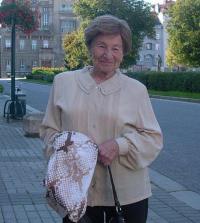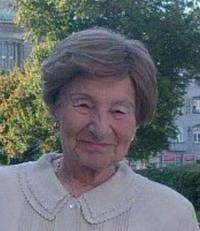Ten days in Auschwitz was enough

Download image
Edna Beck, née Hana Lampelová, was born on 16 June 1926 in Prostějov into a Jewish family. She was the younger of two daughters, her father worked as the chief clerk of a bank, and her mother was a housewife. Both his parents sympathised with the Zionist movement; the witness became a member of Thelet Lavan. The family endeavoured to emigrate to Palestine, but only the older daughter succeeded to move before the war broke out. The witness and her parents were deported to the ghetto in Terezín on 8 July 1942. After two years in Terezín they were placed in a transport to Auschwitz on 4 October 1944. Her mother died there; after ten days, Edna Beck was sent to the Freiberg labour camp, where she worked at a factory making aircraft components. Before the end of the war she was deported to Camp Mauthausen, where she was liberated. After the war she returned to Prostějov, but most of her family had died in concentration camps. In 1945 her uncle, who lived in Palestine, negotiated a fake marriage between her and a British soldier, which allowed her to immigrate to Palestine, where she arrived in 1946. She married in 1949 and raised two children with her husband. She worked as a nurse at a dentist’s practice, later as a waitress, and after starting a family she stayed at home for personal and health reasons. Edna Beck is a widow, she lives in an elderly care home in Haifa.

